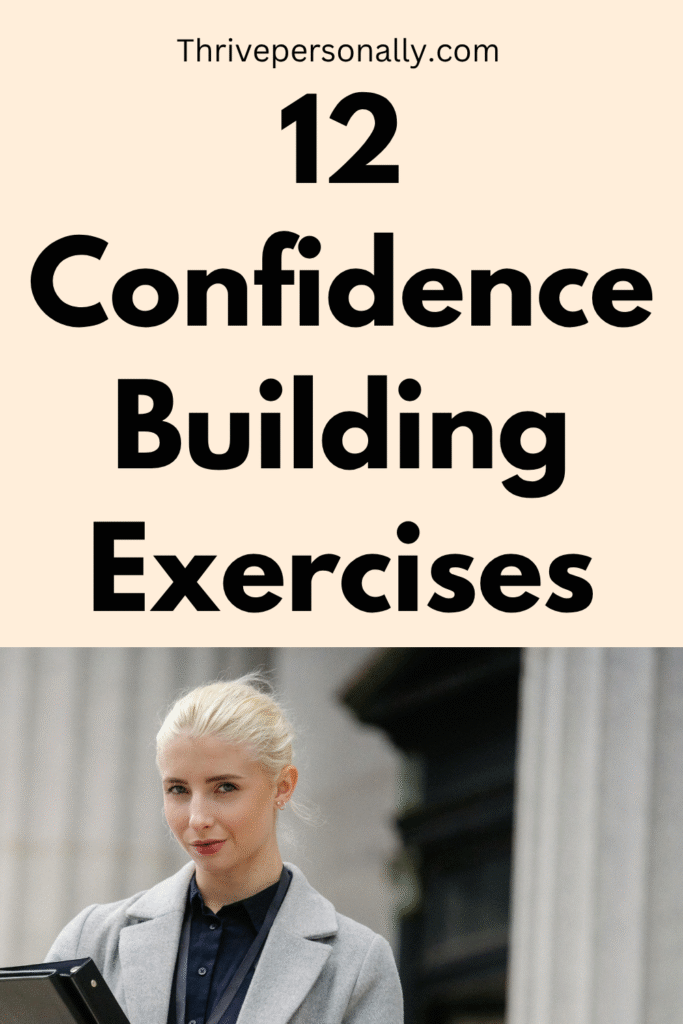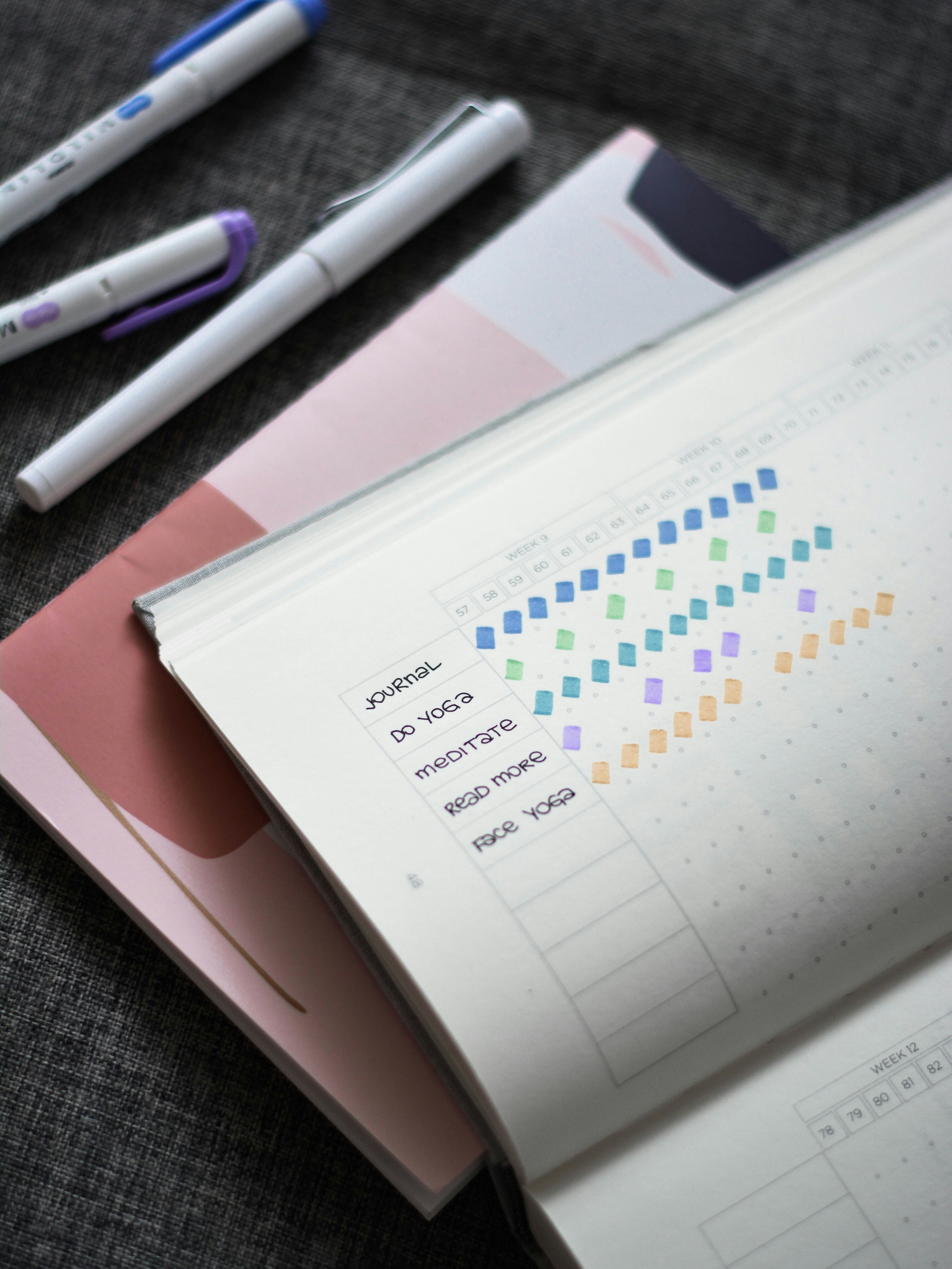Confidence isn’t something you’re born with—it’s something you build. You don’t just wake up one day suddenly feeling brave or strong. It takes time, just like growing a muscle. The more you work at it, the more confident you become. And when it finally shows up, it changes everything. You begin to speak clearly, stand taller, make better decisions, and stop feeling ashamed of who you are.
But many people sit back and wait. They wait for confidence to arrive before they try something new. They wait to feel brave enough to speak up. They wait to feel ready. That’s not how it works. Confidence isn’t what comes first—action does. Taking action is what builds courage.
12 Effective Confidence Building Exercises
1. Use Positive Self-Talk Every Day
What you say to yourself matters. It shapes how you feel and how you behave. If you keep telling yourself you’re not good enough, you’ll believe it. But if you speak to yourself kindly and firmly, your confidence grows.
Replace unhelpful thoughts with better ones. Talk to yourself like you would to a close friend. Instead of saying “I can’t do this,” say “I’ll figure it out.” It’s a small shift, but it makes a big difference in how you carry yourself and how you feel inside.
Read also: 105 Affirmations to Overcome Your Fear
2. Set Simple Daily Goals
When you set and complete small goals, you feel powerful. Whether it’s waking up earlier or starting a new conversation, the size doesn’t matter. What matters is showing yourself you can do it.
Each small win registers in your brain as a success. Over time, these wins add up and boost your belief in yourself. You begin to trust that you can handle harder things. The key isn’t being perfect—it’s about showing up and taking action.
Read also: 7 Key Areas of Your Life to Set Goals
3. Fix Your Posture and Body Language
Your body sends messages to your brain. When you walk with your head down and shoulders slouched, you feel small. But when you sit upright and face forward, your body tells your brain you are ready and strong.
Good posture helps you breathe better, think clearly, and feel more in control. Just a few minutes a day of standing tall in front of a mirror can improve how confident you feel.
A study from Harvard researcher Amy Cuddy found that “power poses”—even for just two minutes—can improve your feelings and performance before a stressful moment.
4. Practice Speaking Up in Safe Spaces
Your voice helps build your confidence. You don’t need to be loud or center-stage—it’s about being honest. Speak up even if your voice shakes.
Start small by talking in groups where you feel comfortable. Share your thoughts or ask a question. Each time you do, you teach your brain to trust your voice. The more you use it, the more natural it feels.
Read also: 9 Effective Ways to Set Boundaries with Family
5. Do One Small Scary Thing Each Week
Confidence lives on the other side of fear. Brave people aren’t fearless—they just don’t let fear stop them. Facing small fears helps you grow stronger.
Pick one small fear to face each week. It could be trying something new or stepping outside your comfort zone. You’ll feel nervous at first, but after it’s done, you’ll feel proud—and that pride becomes strength.
6. Say “No” Without Apologizing
“No” is a powerful word. When you say no to things that don’t serve you, you take control of your time and energy. You stop trying to please everyone else.
Many people struggle with saying no because they fear rejection or want to avoid hurting others. But saying no is an act of self-respect. With practice, you’ll realize your needs matter too. And you stop shrinking yourself to make others comfortable.
7. Keep Track of Your Wins
When you’re always focused on what’s next, it’s easy to forget how far you’ve come. That’s why it helps to track your progress. Keep a notebook where you write down what you did well each day—no matter how small.
When you feel discouraged, read over your list. It shows you how far you’ve grown. You’re not the same person you were last month or last year. Seeing your growth in writing makes it real—and real evidence builds strong belief.
8. Build a Routine That Grounds You
Confidence grows when your life feels steady. When things are chaotic, your mind gets scattered too. That’s where daily routines come in. They bring structure and help you start your day with purpose.
You don’t need a strict schedule—just a few habits in the morning or evening. It could be stretching, journaling, or reviewing your goals. These small practices give you a sense of control. And when life feels steady, your confidence has room to grow.
9. Take Care of Your Body
How you treat your body affects how you feel. Ignoring your health chips away at your confidence. But when you care for your body, you feel stronger, cleaner, and more alive.
Eat well, drink water, move your body, and get enough sleep. These aren’t big things, but they send a powerful message to your brain: “I matter.” And once you believe that, confidence starts to come naturally.
10. Surround Yourself With Positive People
It’s easier to build confidence when you’re around people who believe in you. You don’t need many—just a few who lift you up instead of pulling you down.
Positive people remind you of your worth. They give you space to be yourself. They cheer you on when you try and help you when you fall. If you always feel small around someone, it may be time to step back. You can’t grow in an environment that tears you down.
11. Keep Learning New Things
Learning is a quiet confidence builder. Each time you learn something new, you prove to yourself that you can grow. You build skills. You uncover talents. You find new interests. This makes life more exciting and helps you feel capable.
It doesn’t have to be big. Read a book, watch a video, take a class, or teach yourself something new at home. Everything you learn becomes part of your story. The more you grow, the more you trust yourself.
12. Be Gentle With Yourself
Confidence takes time. Some days, you’ll feel strong like a superhero. Other days, you’ll feel low. That’s normal. What matters is that you keep showing up.
On hard days, speak kindly to yourself. Don’t think you’re weak just because you’re struggling. Don’t compare yourself to others. Your journey is your own—and every small step is still a step forward.
Confidence and self-compassion go hand in hand. True confidence comes when you can treat yourself with kindness, even when you fail. It’s not about being perfect. It’s about knowing you’re enough as you are.
To dive deeper into the role of self-compassion in building mental strength, visit this resource by Kristin Neff, a leading researcher in the field.
Final Thoughts
Confidence isn’t about being loud or perfect. It’s about trusting yourself. It’s about knowing you can handle what life throws at you. And it’s about letting yourself be seen, heard, and valued.
These 12 confidence-building exercises aren’t quick fixes. They’re tools you can use daily to build something strong inside you. You don’t have to do all of them at once. Pick a few. Stay consistent. Trust in your progress.
Every effort you make is a step forward. Each time you show up for yourself, you prove you’re worth the effort. That’s what real confidence is made of—not magic, but action.
Save the pin for later



